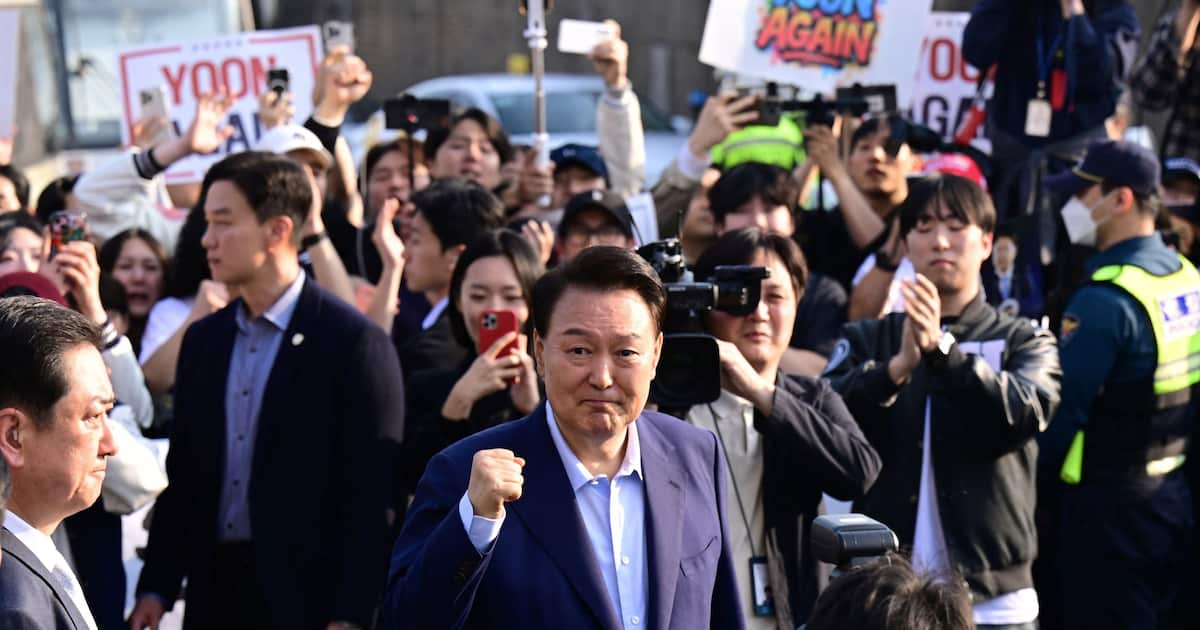South Korea's Conservatives: Rethinking the Past, Shaping the Future
South Korea's political landscape is a dynamic tapestry woven with threads of tradition and progress. The conservative movement, a significant force throughout the nation's history, is currently undergoing a period of introspection and transformation. This article delves into the evolving narrative of South Korean conservatism, examining its historical roots, recent challenges, and its potential trajectory in shaping the country's future.
A Legacy of Development and Division
South Korean conservatism's narrative is deeply intertwined with the nation's remarkable economic growth following the Korean War. Parties rooted in conservative ideology, often emphasizing national security and economic development, have played a crucial role in shaping the country's post-war trajectory. This era saw the rise of chaebols (large family-controlled conglomerates) and a focus on export-led industrialization, policies that propelled South Korea to become an economic powerhouse.
Key Figures and Historical Moments:
- Park Chung-hee: His authoritarian rule, while controversial, is often credited with laying the foundation for South Korea's economic miracle. Understanding his legacy is crucial to understanding modern South Korean conservatism.
- The 1987 June Democracy Movement: This pivotal moment marked a significant shift, challenging the dominance of authoritarian conservatism and paving the way for a more democratic system.
- The Rise of the Grand National Party (GNP) and its successors: Tracing the evolution of this influential party, now the People Power Party (PPP), offers insight into the shifting ideologies and strategies within South Korean conservatism.
However, this era wasn't without its shadows. The authoritarian tendencies of past conservative governments, coupled with allegations of corruption and human rights abuses, have left a complex legacy that continues to fuel debate and influence current political discourse. This historical baggage presents a significant challenge for contemporary conservatives striving for a more inclusive and forward-looking image.
Navigating Contemporary Challenges: From Authoritarianism to Inclusivity?
Modern South Korean conservatism faces significant challenges in a rapidly changing society. The rise of progressive movements advocating for social justice, economic equality, and greater gender equality directly challenges traditional conservative viewpoints. Issues such as:
- Economic Inequality: The widening gap between the rich and the poor necessitates a re-evaluation of economic policies that were once seen as cornerstones of conservative ideology.
- Youth Unemployment: High youth unemployment rates demand innovative solutions that go beyond traditional approaches.
- Geopolitical Tensions: The ongoing tensions with North Korea and the complexities of relations with China and the United States require a nuanced foreign policy approach.
- Demographic Shifts: An aging population and declining birth rate pose significant long-term challenges requiring comprehensive solutions.
The ability of South Korean conservatives to effectively address these challenges will significantly shape their future political viability. The success of the PPP in recent elections suggests a continued strong base of support, but their ability to attract younger voters and bridge the generational divide remains critical.
Redefining Conservatism: A Look Towards the Future
The future of South Korean conservatism hinges on its ability to adapt and evolve. This involves:
- Engaging with younger generations: Addressing their concerns regarding social issues, economic security, and environmental protection is vital for attracting broader support.
- Promoting inclusivity: Moving beyond a perceived focus on a narrow segment of society is essential for establishing a broader base of support.
- Embracing technological advancements: Recognizing the importance of innovation and technological progress in addressing the nation's challenges.
- Open dialogue and reform: A willingness to engage in open dialogue and reform is critical for building trust and credibility.
Ultimately, South Korean conservatism's future depends on its capacity to reconcile its historical legacy with the demands of a modern, progressive society. Whether it can successfully navigate these challenges and redefine itself for a new era remains to be seen. This will not only shape the political landscape of South Korea but also influence its economic trajectory and geopolitical standing on the world stage.
Further Reading: (Links to relevant academic articles and news sources would be inserted here)
Call to Action: What are your thoughts on the future of South Korean conservatism? Share your opinions in the comments below!
